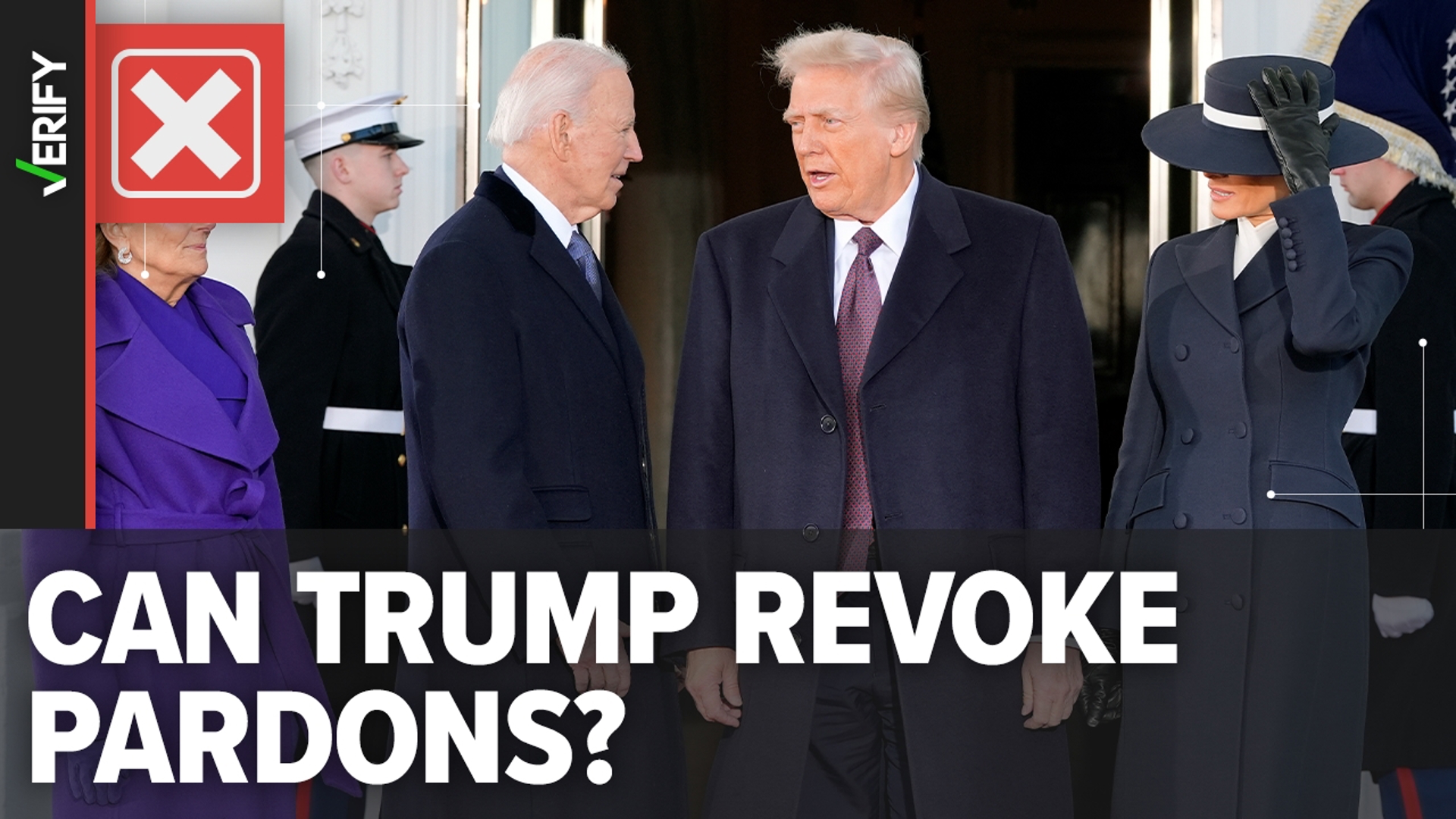In the final hours of his presidency, Joe Biden issued blanket pardons to several people to protect them from politically-motivated prosecutions.
Recipients included members of his family like his brother James Biden, former public health figurehead Anthony Fauci, outspoken Trump critic Gen. Mark Milley, members of the January 6th committee such as Liz Cheney and Adam Schiff, and witnesses in the January 6th hearings like former police officer Michael Fanone.
The pardons make it impossible for those people to be punished for any alleged federal crimes, though Biden said he believed no such crimes were actually committed.
VERIFY readers wanted to know if newly sworn-in President Donald Trump can revoke the pardons that Biden issued before leaving office.
THE QUESTION
Can presidential pardons be revoked?
THE SOURCES
THE ANSWER

No, presidential pardons cannot be revoked once finalized.
WHAT WE FOUND
The Constitution gives the president sweeping powers to pardon people for federal crimes, and there is nothing in the Constitution or federal law that allows anyone to revoke a presidential pardon once it’s delivered.
There is one grey area: revoking a pardon that hasn’t been formally delivered.
In 1869, outgoing president Andrew Johnson issued a pardon which incoming president Ulysses S. Grant soon tried to revoke.
A federal judge ruling on the case wrote, “The law undoubtedly is, that when a pardon is complete, there is no power to revoke it, any more than there is power to revoke any other completed act.”
But the judge added, “And yet the question still remains — when is a pardon complete?”
He decided it was not complete until the pardon is actually delivered to the person receiving it, or someone with the authority to receive it for them.
In this case, the pardon had only made it through a series of messengers, the judge ruled, and was stopped before it could reach the recipient. Therefore, it could be revoked.
This precedent was invoked more recently in 2008 by President George W. Bush.
In the final weeks of his presidency, Bush pardoned a real estate developer who had pleaded guilty to fraud. When it was revealed the man’s father had donated thousands of dollars to Republican campaigns, Bush quickly changed his mind to avoid the appearance of impropriety.
According to news reports at the time, Bush’s Department of Justice argued the president was allowed to revoke the pardon because the recipient “had not received formal notification of the president’s action” and therefore the pardon had not been finalized.
This means that under current law, as long as President Biden made sure the pardons were officially delivered, they cannot be revoked.
VERIFY reached out to the Department of Justice to ask what the modern process is for officially delivering pardons, but did not receive a response by the time of publishing.

